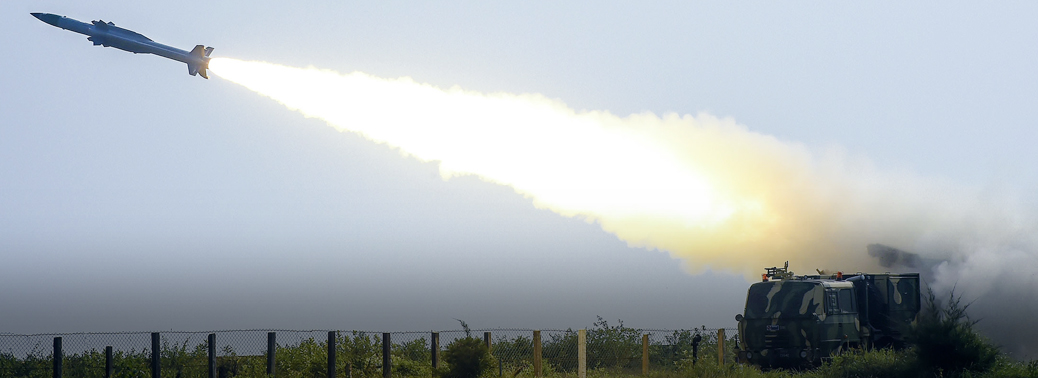India’s DRDO test fires
13, Sep 2018

Prelims level : Defence
Mains level :
Why in news?
- India’s Defence Research and Development Organization (DRDO) has conducted the first successful test firing of a new indigenously designed and developed man portable antitank guided missile (MPATGM) at the Ahmednagar test range in the western Indian state of Maharashtra.
MPATGM:
- The MPATGM is a third-generation anti-tank guided missile (ATGM), which has been under development by DRDO in partnership with Indian defence contractor VEM Technologies Ltd. since 2015.
- Fitted with a high-explosive anti-tank (HEAT) warhead, the MPATGM reportedly boasts a top attack capability and has a maximum engagement range of about 2.5 kilometres.
- The man-portable missile is said to be a derivative of the NAG weapon system, and will be the third iteration of the missile following the baseline vehicle-launched version and air-launched version HELINA.
- The Indian Army finally opened its doors to the baseline NAG missile earlier this year after the MoD cleared an inaugural $70 million deal for 300 NAG missiles across 25 tracked launcher vehicles.
- The MPATGM program was sanctioned in January 2015, envisaging modifications to the NAG missile along with a launch tube and launcher system. Design configurations were frozen by the end of 2015.
- In 2016, the DRDO conducted eight static tests of the rocket motor to monitor ballistic performance for shoulder launch.
- India has a large requirement of anti-tank guided missiles running into more than 40,000 missiles for its hundreds of infantry and mechanised Army units.
- It has in the past turned down offers of the U.S.-built Javelin system and has oscillated over the Israeli SPIKE system.
- The indigenous MPATGM is finally off the ground, but has a journey ahead, including an unforgiving user trial phase (that endlessly bedevilled the original NAG system) following the current phase of development launch tests.
- The DRDO has been involved in researching man-portable anti-tank infantry weapons for years now. In 2009, it unveiled a separate light-weight 84mm anti-tank system






